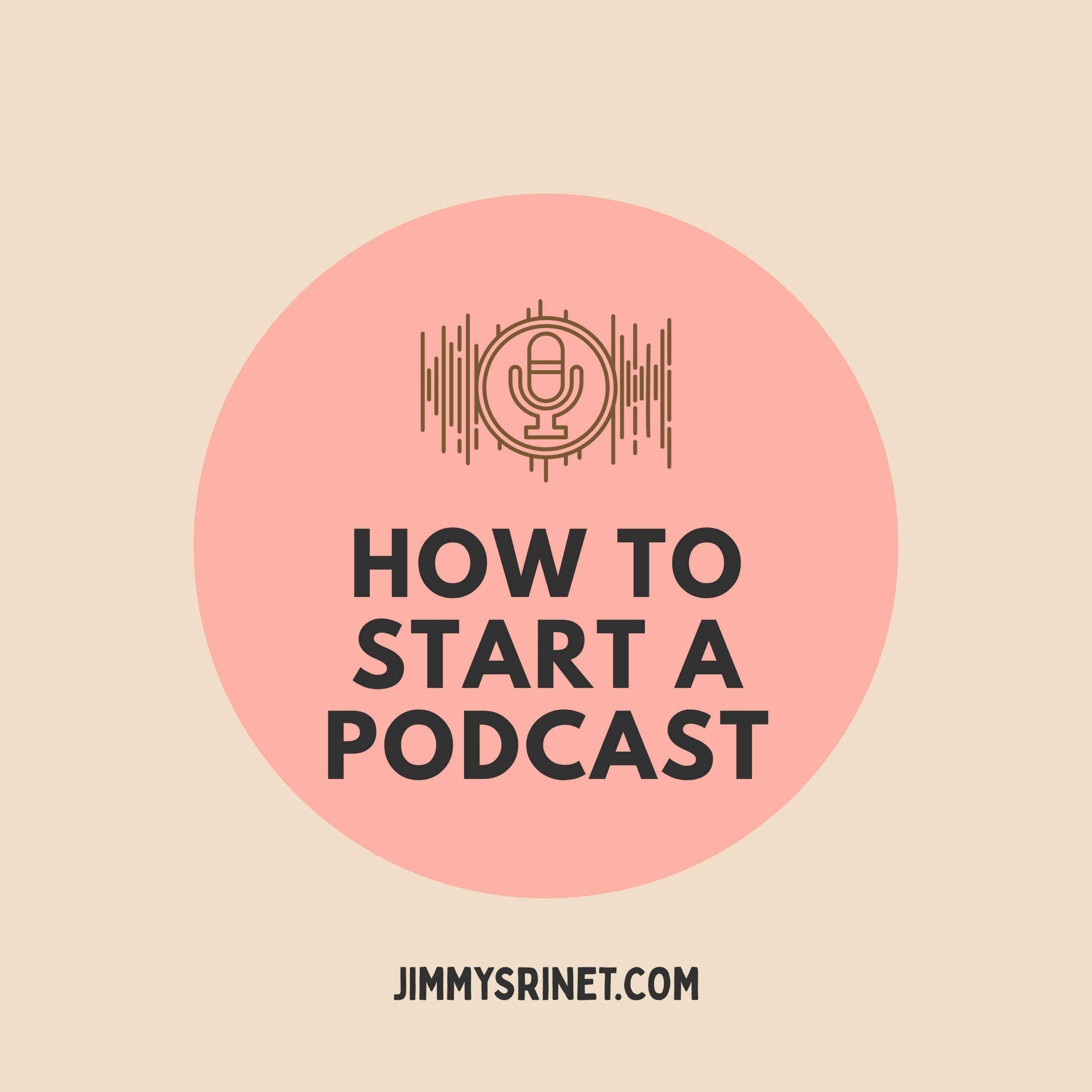In this article, we will explore A Comprehensive Guide on How to Start a Podcast in 2025.
In the era of digital content consumption, podcasts have emerged as a powerful and engaging medium for storytelling, education, and entertainment.
What Is a Podcast?
A podcast is an audio or video series, typically episodic, available for streaming or download.
It covers diverse topics, including news, education, entertainment, and storytelling. Podcasts provide on-demand content, fostering a convenient and portable way for audiences to engage with a wide range of subjects.
Reasons To Start a Podcast
There are several great reasons to start a podcast, the most common of which include
A. You want to build an audience
The most successful podcasts reach millions of listeners. A podcast is a relatively inexpensive way to build a following.
B. You want to build credibility as an expert in your niche or industry
Your expertise and knowledge in a particular niche will help you to grow your Podcast.
C. You want another stream of revenue or income
Because podcasts are a more intimate medium, they can be a powerful way to sell your product or service.
If you don’t have a specific product or service you’d like to sell, you may eventually be able to monetize your podcast by playing sponsored advertisements and earning money that way.
D. You want to build your network
Through podcasting, you can meet other people who are interested in what you talk about and can help you further your career or business.
E. You want to have fun
You don’t have to have a particular business or monetization goal to start a podcast. You can record a podcast purely for your enjoyment.
How To Make a Successful Podcast
Tips for creating a successful podcast, however, require more than just hitting the record button.
In this podcasting guide, we will walk you through the essential steps to launch and sustain a podcast that captivates your audience.
1. Discover Your Niche and Audience
Discovering your niche and audience in podcasting requires proven steps. Identify your target demographic, research their interests, and tailor your content to resonate with them.
Engage with your audience, gather feedback, and refine your approach for sustained success in the competitive podcasting landscape.
2. Strategize Your Content
Successful podcasts are built on thoughtful planning. Outline your episodes, create a content calendar, and establish a consistent publishing schedule.
This not only keeps you organized but also helps retain your audience’s interest. Consider incorporating a mix of evergreen content and timely topics to ensure your podcast remains relevant over time.
Here are some potential topics and themes you could explore in your podcast
- Content planning and scheduling
- Understanding your target audience
- Creating engaging multimedia content (videos, infographics, etc.)
- Content optimization for SEO
- Leveraging social media platforms for content distribution
- Building an effective content marketing strategy
- Measuring content performance and analytics
- Content repurposing and recycling
- Interviewing successful content creators and marketers
- Emerging trends and technologies in content creation and marketing
3. Invest in Quality Recording Equipment
While you don’t need a professional studio to start a podcast, investing in decent audio equipment is crucial.
- Microphones: Invest in good-quality microphones to ensure clear and crisp audio. Consider dynamic microphones like the Shure SM7B or condenser microphones like the Audio-Technica AT2020.
- Audio Interface/Mixer: This is necessary for connecting your microphones to your computer and controlling audio levels. Focusrite Scarlett interfaces or Yamaha MG mixers are popular choices.
- Headphones: Get a pair of closed-back headphones to monitor your audio while recording. This helps in detecting any issues and ensuring sound quality. Brands like Audio-Technica and Sony offer excellent options.
- Recording Software: Choose a reliable recording software for capturing and editing your podcast episodes. Audacity
A good microphone and headphones can significantly improve the quality of your recordings. Clear, crisp audio enhances the listening experience and keeps your audience engaged.
4. Craft Authentic and Compelling Content
Content is king in the podcasting world. Develop a unique voice and style that sets your podcast apart. Be authentic, share personal experiences, and bring passion to your discussions.
- Understand your audience and tailor content to their interests.
- Share genuine stories, insights, and valuable information.
- Maintain consistency in your publishing schedule.
- Encourage audience interaction and feedback.
- Stay relevant by addressing current trends and issues.
Engage your audience by telling stories, asking thought-provoking questions, and keeping the conversation dynamic.
5. Focus on Engaging Interviews
If your podcast involves interviews, prepare thoughtful questions and research your guests thoroughly.
- Thorough Pre-Interview Preparation: Research your guests thoroughly beforehand. Understand their background, expertise, and any notable achievements. This not only demonstrates respect for your guests but also helps tailor questions that will engage them and provide valuable insights to your audience.
- Build a Connection: Establishing rapport is crucial for a successful interview. Start with some informal conversation to put your guest at ease before diving into the main discussion.
- Ask Thoughtful and Open-Ended Questions: Instead of sticking to a rigid script, be flexible and responsive to the direction of the conversation. Craft questions that encourage your guest to share their insights, stories, and unique perspectives. Open-ended questions invite elaboration and can lead to more engaging discussions.
- Active Listening and Follow-Up Questions: Pay close attention to your guest’s responses. Active listening demonstrates respect and ensures that you can delve deeper into interesting points or clarify any misunderstandings.
- Foster a Conversational Atmosphere: Aim for a conversational tone rather than a formal interrogation. Encourage your guests to express themselves naturally and authentically. Avoid dominating the conversation or interrupting excessively. Remember, the goal is to create an engaging dialogue that captivates both your guest and your audience.
Engaging in interviews provides valuable insights and attracts a broader audience interested in your guests’ expertise or experiences. Ensure a smooth flow of conversation to keep listeners hooked.
6. Prioritize Editing and Post-Production
Editing is a crucial aspect of podcasting. Trim unnecessary content, eliminate background noise, and enhance audio quality during post-production.
- Quality Over Quantity: Prioritize quality editing over releasing episodes quickly. Take the time to edit out any awkward pauses, filler words, or tangents that detract from the overall listening experience. A polished final product reflects positively on your podcast and keeps listeners coming back for more.
- Enhance Audio Clarity: Invest in high-quality recording equipment and editing software to ensure clear audio throughout your podcast. Remove background noise, adjust levels, and equalize audio to create a professional sound. Consistent audio quality enhances listener engagement and retention.
- Craft Engaging Narratives: Use editing techniques such as music, sound effects, and strategic pauses to enhance storytelling and maintain listener interest.
- Iterate and Improve: Continuously review and refine your editing process based on listener feedback and personal reflection. Experiment with different editing styles and techniques to find what works best for your podcast format and audience preferences.
A well-edited podcast not only sounds more professional but also demonstrates your commitment to delivering a polished product to your audience.
7. Create Eye-Catching Cover Art
Visual appeal matters in podcasting. Design eye-catching cover art that reflects the essence of your podcast.
- Capture the Essence of Your Podcast: Design cover art that visually communicates the essence of your podcast’s theme, tone, and content. Use relevant imagery, colors, and typography to convey the mood and subject matter to potential listeners at a glance.
- Keep it Simple and Easily Digestible: Opt for a clean and minimalist design that is easy to read and visually appealing, even at smaller sizes. Avoid cluttering the cover with excessive text or intricate details that may become lost or overwhelming.
- Ensure Brand Consistency: Maintain consistency with your podcast’s branding elements, such as color scheme, logo, and font choices, across all platforms and marketing materials. Consistent branding helps to establish recognition and credibility, making it easier for listeners to identify and remember your podcast amidst a sea of options.
- Stand Out in a Crowded Market: Research existing podcasts in your niche to understand common design trends and identify opportunities to differentiate your cover art. Aim to create a visually distinct and memorable cover that grabs attention and stands out from competitors.
A compelling image can attract potential listeners browsing through podcast directories and contribute to the overall branding of your show.
8. Leverage Social Media and Networking
Promote your podcast through social media platforms to expand your reach. Create accounts specifically for your podcast and engage with your audience.
- Engage with Your Audience: Actively engage with your audience on social media platforms by responding to comments, messages, and mentions. Encourage listeners to share their thoughts, questions, and feedback about your podcast episodes.
- Collaborate with Influencers and Podcasters: Collaborate with influencers, thought leaders, and other podcasters in your niche to expand your reach and tap into their established audiences. Guest appearances on other podcasts, cross-promotional campaigns, and joint live events can introduce your podcast to new listeners who share similar interests.
- Create Shareable Content: Produce shareable content specifically tailored for social media platforms to increase visibility and attract new listeners. This could include teaser clips, quote graphics, behind-the-scenes footage, or highlight reels from your podcast episodes.
- Join Relevant Communities and Forums: Participate in online communities, forums, and discussion groups related to your podcast’s niche or topic. Share valuable insights, contribute to discussions, and establish yourself as a knowledgeable and trusted authority within the community.
Networking with other podcasters and influencers in your niche can open up collaboration opportunities and help you tap into new listener bases.
9. Encourage Audience Interaction
Foster a sense of community by encouraging listener interaction. Ask for feedback, respond to comments, and consider incorporating listener questions or shout-outs in your episodes.
- Interactive Q&A Sessions: Host regular Q&A sessions or live episodes where listeners can submit questions in advance or participate in real-time discussions. This allows your audience to directly engage with you and your guests, fostering a sense of connection and involvement.
- Create Community Platforms: Establish online community platforms, such as forums, social media groups, or Discord channels, dedicated to your podcast. Encourage listeners to join these communities to discuss episodes, share insights, and connect with like-minded individuals.
- Interactive Polls and Surveys: Utilize polls and surveys to gather feedback from your audience and involve them in decision-making processes related to your podcast. Ask for input on potential episode topics, guest suggestions, or format changes to ensure that your content resonates with your audience’s interests and preferences.
Connecting with your audience enhances their loyalty and makes your podcast more memorable.
10. Monetize Strategically
Once your podcast gains traction, explore monetization options. This could include sponsorships, affiliate marketing, or even listener support.
- Diversify Revenue Streams: Instead of relying solely on traditional advertising or sponsorships, explore diverse revenue streams to monetize your podcast. Consider options such as merchandise sales, premium subscription tiers with exclusive content or benefits, crowdfunding campaigns, live events or workshops, affiliate marketing, or offering consulting services or online courses related to your podcast’s niche.
- Maintain Authenticity and Relevance: When considering monetization strategies, prioritize maintaining authenticity and relevance to your audience. Choose sponsors, advertisers, or monetization methods that align with your podcast’s values, content, and audience demographics.
Choose monetization methods that align with your content and resonate with your audience to maintain authenticity.
11. Analyze and Adapt
Regularly analyze your podcast’s performance using analytics tools.
Understand your audience demographics, track episode performance, and gather feedback. Use this data to adapt and refine your content strategy, ensuring that you continue to meet your listeners’ evolving needs and preferences.
- Utilize Listener Analytics: Regularly analyze listener data and analytics to gain insights into audience demographics, listening behaviors, and engagement patterns. Platforms like Spotify, Apple Podcasts, or dedicated podcast hosting services provide valuable metrics such as download numbers, listener locations, device usage, and episode retention rates.
- Stay Agile and Flexible: Remain open to feedback, evolving trends, and changing industry dynamics, and be willing to adapt your podcast format, content, or monetization strategies accordingly. Experiment with new formats, topics, or guest formats to keep your podcast fresh and engaging.
Frequently Ask Questions
A. How much money do you make making a podcast?
Podcast earnings vary widely, influenced by factors like audience size, sponsorships, and monetization strategies.
Successful podcasters can generate income through ads, listener donations, and partnerships, but the amounts differ significantly.
B. How do I get 1000 listeners for my podcast?
Building a podcast audience of 1000 requires consistent high-quality content, effective promotion on social media, engaging with your audience, seeking guest collaborations, and optimizing your show for discoverability.
C. How do I make my podcast popular?
To make your podcast popular, focus on compelling content, consistent release schedules, effective promotion on social media, engaging with your audience, and optimizing for search and discoverability.
D. How do podcast owners get paid?
Podcast owners get paid through sponsorships, advertisements, listener donations, and partnerships. Successful monetization also involves leveraging platforms like Patreon or exclusive content on subscription services.







